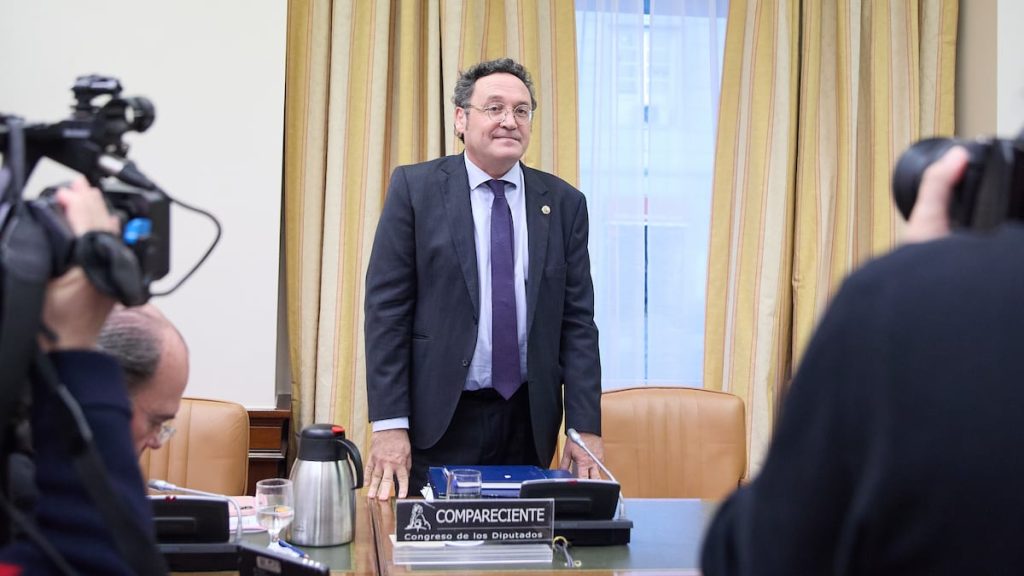Conservative prosecutors have taken another step in their conflict with the Attorney General of the state, Álvaro García Ortiz, by announcing that they are leaving the working group established a month ago to draft a new Organic Statute of the Public Prosecutor’s Office. This new statute is necessary in order to assume the powers that will be granted to them by the new Criminal Procedure Law (Lecrim), a project that has been stalled for years and that the government wants to accelerate, placing the instruction of criminal cases in the hands of prosecutors. The Conservative Prosecutors Association (AF) justifies their decision to leave the working group in response to statements made by García Ortiz last week, in which he implied that some associations share objectives with certain political parties. The Association of Independent Prosecutors (APIF), another conservative prosecutors’ association, had already left the working group a few weeks ago due to disagreements with the Attorney General, leaving only the Progressive Prosecutors’ Association (UPF) at the table.
The move by the two conservative prosecutors’ associations can be seen as a kind of boycott of the new Lecrim, one of the most significant legal reforms in recent years that will overhaul the criminal process. Prosecutors have historically advocated for this reform, with AF participating in a report on the government’s draft law three years ago. While both AF and APIF have historically called for reform of the Lecrim, in recent weeks prosecutors from these associations, who are openly at odds with the Attorney General, have suggested that it was not the right time to make this change. However, when García Ortiz called the three associations together in April to take on the task of drafting the new Statute, they accepted the assignment. But from the beginning, prosecutors from the conservative sector were opposed to collaborating with García Ortiz on this task. Just a month later, the two associations opposed to the Attorney General have dropped out of the project.
The AF bases its decision on statements made by García Ortiz last week in an interview on Cadena Ser, following the Supreme Court’s annulment of the appointment of Dolores Delgado as prosecutor for Democratic Memory and the Senate’s condemnation of the Attorney General. García Ortiz suggested that there are similar objectives between certain judicial and prosecutorial associations and certain political parties, a statement that the AF considers to be “serious and unacceptable insinuations” that cast doubt on the professionalism and independence of prosecutors in this association. Despite the withdrawal of two of the three associations, sources from the Public Prosecutor’s Office acknowledge that the reform of the Statute is “essential” to implement the Lecrim, a law whose approval date is unknown but that Minister of Justice, Felix Bolaños, aims to advance in the coming months.
According to sources, the Public Prosecutor’s Office will continue with the work to reform the Statute, as it is a “historical demand” and benefits the entire legal profession. García Ortiz’s camp also emphasizes that this reform goes beyond the current Attorney General, as the full implementation of the law, which represents a major change in the criminal process, is expected to take up to six years once it is approved. The conflict between conservative prosecutors and the Attorney General reflects broader tensions within the legal profession and highlights the challenges of enacting significant legal reforms while navigating political and professional divisions.















